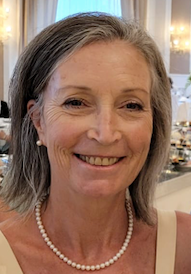Students working on a professional doctorate such as an EdD usually have to juggle work, family and study. It is not an easy task because, as practitioners, research is a whole new area, and we have less time to come to terms with it than our PhD peers. On the other hand, we have the knowledge and expertise of our practices that no one outside of them could have. Of course, in principle, combining theory and practice would be ideal for research, but in reality, combining the two presents a myriad of problems.
My transition into academia was challenging because of a long career in teaching in secondary schools. Having completed my EdD, I can now see that Action Research (AR) has been critical in my EdD journey as a researcher, guiding me in the correct direction for each mistake I made (and there were many).
 The two reasons that AR helped me were:
The two reasons that AR helped me were:
- AR follows a spiral of iterative steps encouraging the researcher to reflect upon the research process and observe it from an outsider’s point of view;
- The research questions arise directly from practice rather than from the literature, as with more theoretical studies and allows for change, modification and progress in all areas, including the research questions.
Although there are many kinds of AR, my research focused upon two collaborative methods:
- Participatory Action Research (PAR) is a large-scale study aiming at emancipation and change within organisations or communities (Cresswell, 2003).
- Collaborative AR is when the researcher and a group of like-minded colleagues work together, often (and in my case) as research participants.
For example, I used Burns’s (1999) eleven-phase spiral framework when I needed a detailed analysis, and Altrichter, Kemmis, McTaggart and Zuber-Skerritt’s (2002) four-phase one when I needed a more comprehensive summary of what was happening
Using the AR methodology to organise notes and findings regularly throughout my research clarified what was happening and the best course of action. Measures included changing research questions, discarding unnecessary data and even changing the method of data analysis from a case study to a multiple case study towards the end of the study.
In conclusion, combining research and work has not been easy, but the most challenging thing was to perceive my practice through the eyes of an academic and not a teacher. In my experience, together with my excellent supervisors, AR was the solution. What challenges have other practitioners come across in their quest to combine work and research?
We would be grateful if you could let us know by sending a blog post to: WELS-Prof-Docs@open.ac.uk, please put BLOG as your subject.
by Dr. Lesley June Fearn @lesleyfearn


